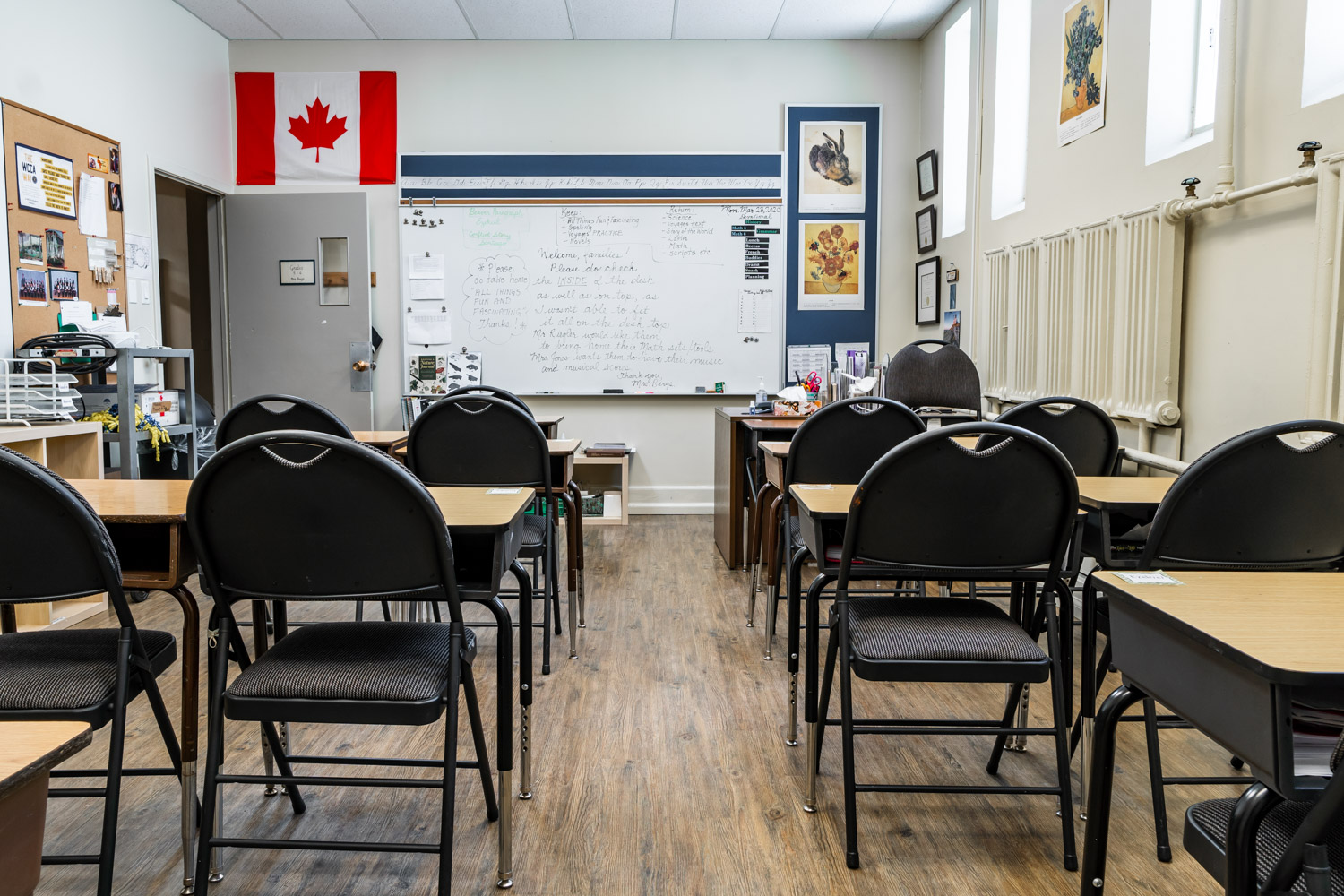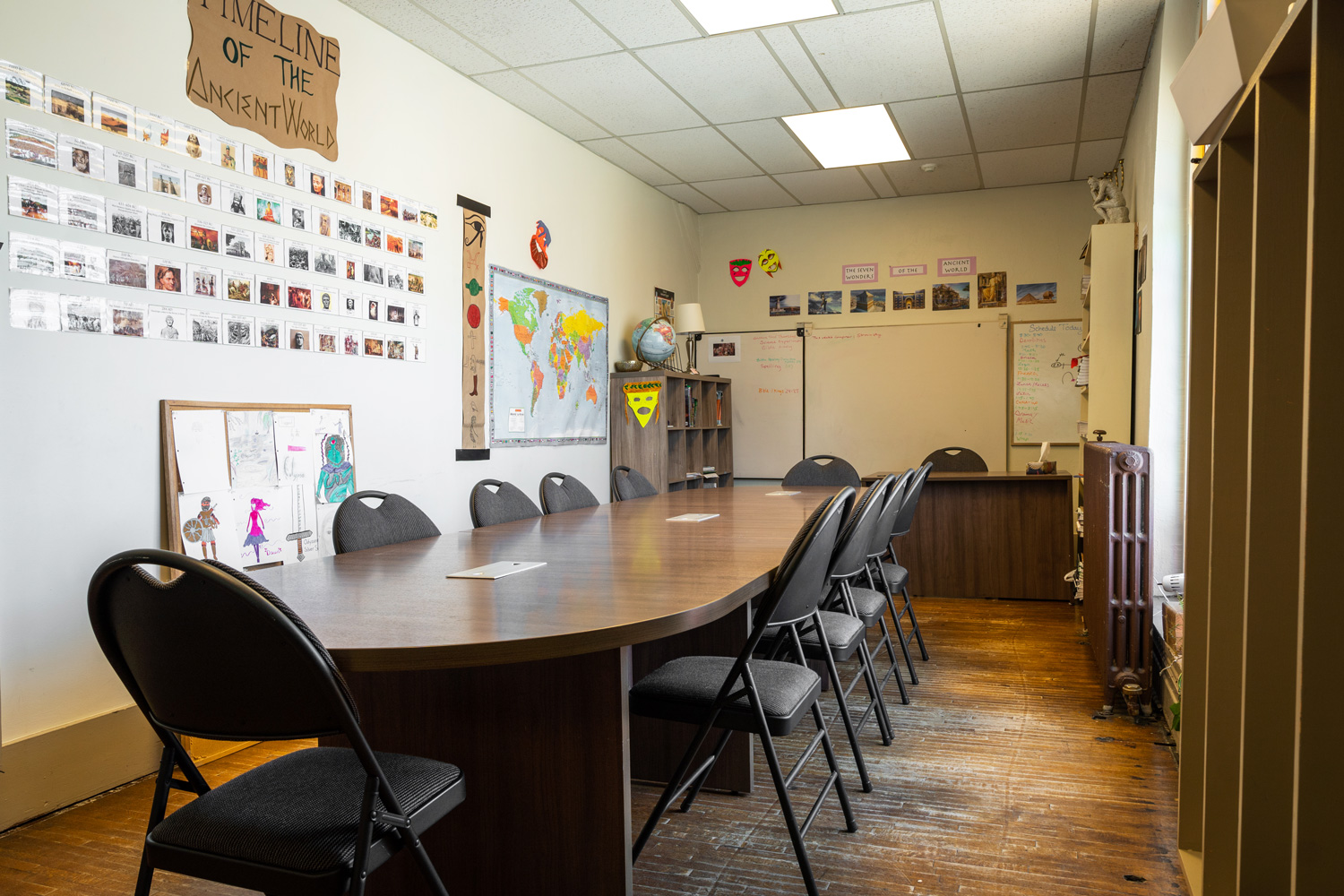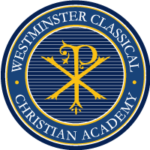
Logic Stage (Grades 7 to 8)
The Classical Model
During the Logic stage (Grades 7-8), WCCA engages and stimulates a student’s sense of wonder and excitement about the world in which he or she lives. Students at this stage show enthusiasm for learning new concepts, and increasingly find the desire to be challenged and to start asking deeper questions.
As students mature during the Logic stage and their ability to think abstractly increases, they naturally desire debate, critical analysis, persuasive writing, and more in-depth discussions about the literature, history, and science they are studying. WCCA’s classical pedagogy and curricula are designed to be interactive, stimulating, and incorporate experiential learning.

Christian Studies & Biblical Training
Our students, across all grades, memorize a great deal. This is no exception in the Logic stage. The hope is that our students will have God’s Word written on their hearts. The passages memorized are directed towards these questions: What is the gospel? Who am I in Christ? How ought I to live as a Christian?
Family Discipleship
WCCA highly values parental involvement. While teachers teach Biblical truths and doctrines, they also encourage parents to be involved in helping students interpret the Bible. We recognize the importance of parents passing on their faith to their children.
Reading of Christian Biographies
WCCA believes in the power of God’s Word and the influence of great books. Teachers put great books in front of students and allow the stories to have their own profound effect. Children naturally insert themselves in stories and identify with characters. As part of their Bible class, students read great Christian biographies, which can invigorate their faith and stir a love for God, His Word, and the world.
Copybook
Literature & Composition
Students learn to write with excellence through imitation. Consistent exposure to great works of literature trains the ear and the eye to styles of superior writing, which students then learn to model into their own compositions. The focus of writing at the Logic stage is on clarity, beauty, and power.
History & Geography
In Geography, students work at mapping areas related to their historical studies. This includes physical features, major bodies of water, countries and major cities. They study physical geography connected to their history curriculum, for example, geysers in Iceland and fjords in Norway when learning about the Vikings. They also study more general physical geography, such as the continents, longitude and latitude, the hemispheres, ocean currents, and layers of the atmosphere.
Logic
Mathematics
Science
Latin
Visual Arts
Students begin a focused study of the principles of design, both implicitly in the drawing instruction and explicitly in abstracted (flat) design studies. Students also observe, study, analyse, and explore the elements of design, and then use them in what they create. This study of the elements and principles of design provides food for the student’s developing analytical and reasoning skills in the Logic stage.
Students continue to study great artists who have devoted themselves to the study of beauty, virtue, and truth. They examine various works of art that are outstanding expressions of the periods of history that they are studying concurrently. Strong connections are also made with other areas of study such as mathematics and science.
Physical Education
Music
The WCCA choir, which includes all students at the school, offers students an opportunity to further develop their voices and their ears, as well as learn to harmonize. In our annual Spring Musical, Logic students take the lead roles, performing solos and duets, as well as singing in the chorus.

 WESTMINSTER CLASSICAL
WESTMINSTER CLASSICAL
CHRISTIAN ACADEMY
9 Hewitt Avenue, Toronto, Ontario M6R 1Y4
(416) 466-8819 | office@westminsterclassical.ca